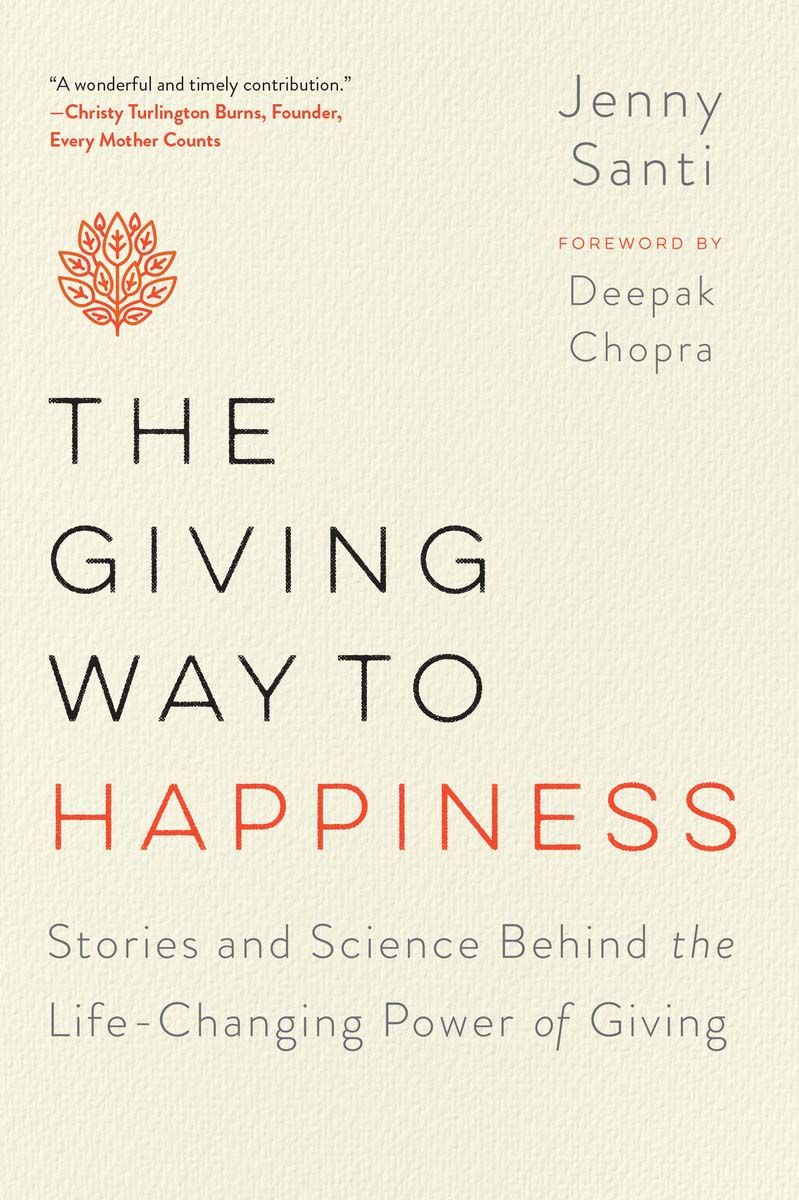Adapted with permission from The Giving Way to Happiness: Stories and Science Behind the Transformative Power of Giving by Jenny Santi. © 2015 by Jennifer Rose W. Santi. Tarcher Books, Penguin Group USA, Penguin Random House.
I believe that givers start giving because they are moved by a cause, but they endure because giving brings them happiness and fulfillment. Modern science sheds new light on this phenomenon. More than twenty years ago, Allan Luks brought forward the concept of the “helper’s high,” resulting from studies showing that groups who had helped through time and/or money experienced a “euphoria” similar to that of those who had completed a physical challenge such as a race. Giving is the source of true happiness; the meaning of life; the source of hte greatest emotional and psychological returns.
Here are 9 ways to give that lead to happiness and fulfillment:
1) Find your passion. I strongly believe that your passion should be the foundation for your giving. Giving should be personal. If your heart isn’t fully into it, you’re very likely to get bored, distracted, and apathetic. Reflect on your personal experiences in order to decide what issues you want to focus on, whom you want to help, and where you want to act.
Click here to support Guideposts’ outreach programs.
2) Form your vision. A vision describes what you want the world to look like. It is both idealistic and long term, and it serves as both inspiration and motivation. Your vision will be of central importance to you as you explain and share with others what you hope to accomplish. It helps to write down this vision.
3) Find your niche. Armed with an understanding of your motives and what you can contribute, decide on the focus of your 
4) Give your time. Giving is by no means limited to gifts of money. The gift of time is sometimes even more valuable to the receiver, and more satisfying for the giver. We don’t all have the same amount of money, but we all do have time on our hands, and can give some of this time to help others, whether that means we devote our lifetimes to service, or just give a few hours each day or a few days a year.
5) Chunk your giving. In a study led by psychologist Sonja Lyubomirsky, people performed five random acts of kindness every week for six weeks. Happiness increased when people performed all five giving acts in a single day, rather than doing one a day. So although performing random acts of kindness can give us a high, we can reach greater heights if we actually schedule our giving.
6) Ask for transparency. Giving is not risk free. There is a likelihood of failure. Even the best projects led by the most dedicated people can fail, or even unwittingly make things worse. To mitigate risk, it is important to conduct due diligence on potential recipients and partners. For many of us, this simply means asking for transparency.
7) Do something that makes a real impact–and see it for yourself. The greatest reward is often said to be the impact one has on an issue. This is why it’s better to give while you live, rather than waiting for people to do things on your behalf once you have gone.
8) Be proactive. If you find yourself considering a gift to charity that called you on the phone, you’ve already lost most of the battle to do as much good as possible. Your efforts will go furthest if you set time aside, think about all your options, and then find the best charity for your values. If you wait for charities to come to you, you’re just rewarding the ones that are most aggressive–not the ones that do the most good.
9) Accept gratitude. There’s a debate about which kind of giving is more moral: giving anonymously, or letting your identity as the giver be known. Harvard Business School’s Michael Norton says that the happier giver is the one who lets his identity be known.






